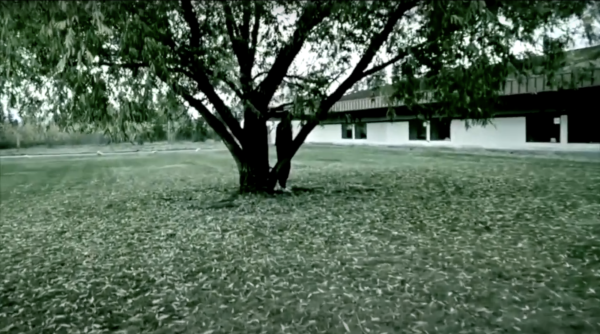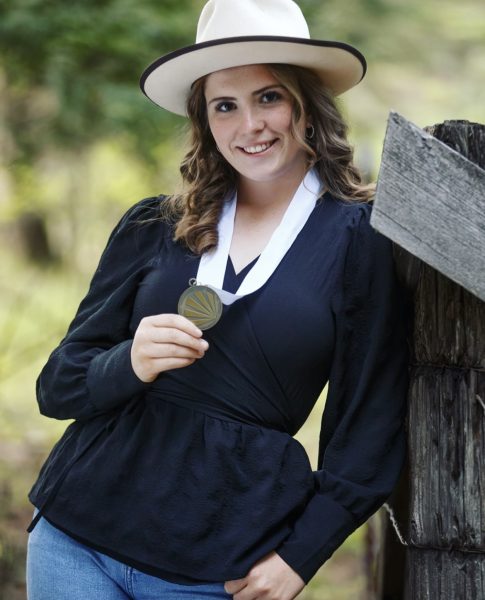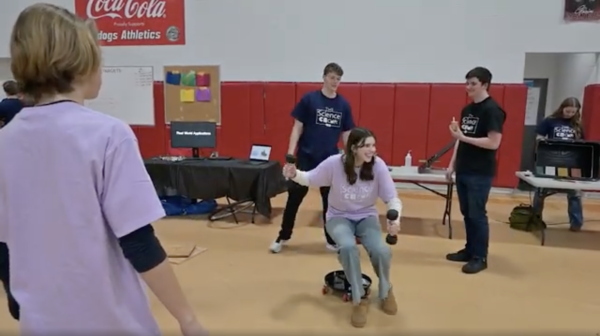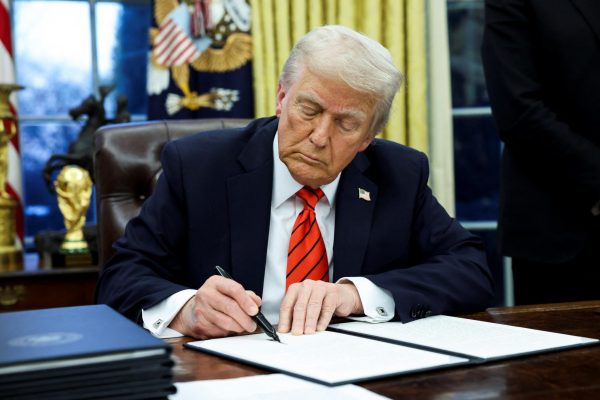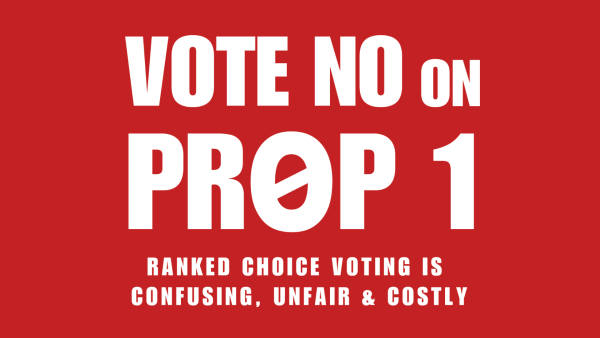TRUMPIVERSARY
School reflects on president’s first year in office
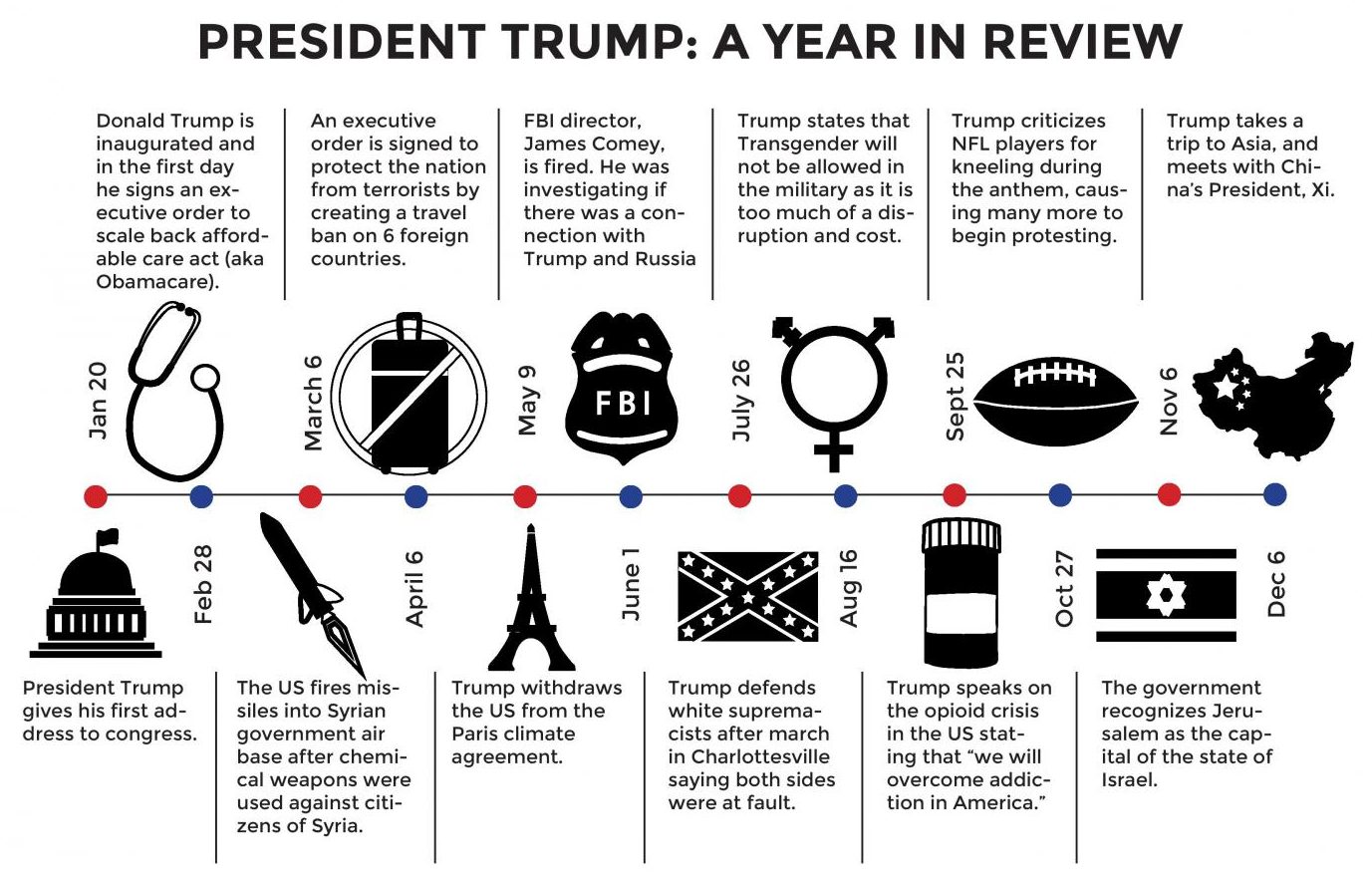


Jan. 20 marked the completion of President Donald Trump’s first year in office. Opinions on President Trump are mixed among Sandpoint High students, and American citizens at large.
Senior Morgan Hogue considers Trump’s first year as President to be successful.
“I feel like he’s gotten a lot of what he said he’d get done, [done],” Hogue said. “He’s gotten bills passed super quickly and has been really productive.”
Freshman Connor Bird feels the opposite.
“He hasn’t really expanded on any of the promises he made during his campaign. I think he should be on his phone less and focus on real issues,” Bird said.
President Trump has passionate support and thorough disapproval across the spectrum at SHS.
Debate aside, current political discourse can influence day-to-day life of U.S. citizens in a variety of ways, some going unnoticed by many citizens.
Junior Laneka Thompson has noticed no direct effects of Trump’s presidency on her life. “There’s nothing that’s changed so that my family has to change something in our lives, but it hasn’t like impacted us yet. Maybe in the future it will [affect me], but as of right now it hasn’t done anything,” Thompson said.
Sophomore April Radford said that she noticed some social changes beyond classroom debate resulting from Trump’s presidency.
“I’ve noticed a greater sense of nationalism in my community,” Radford said. “I didn’t consider myself a feminist or a humanitarian, I didn’t think racism or sexism were an issue before Trump’s presidency because that’s when people started to become really vocal about it and that’s when that started to apply to me.”
Radford said that anti-semitic jokes directed towards her — swastika signs, Aryan group hand signals and ‘heil Hitler’ comments — have persisted through the past year and today. “It existed [before Trump] but I feel like people weren’t as vocal about it and they weren’t as…confident in their beliefs,” she said. “…People don’t even feel bad about it, they’re not even quiet about it anymore.”
The majority of students interviewed agreed upon one thing: conversations of politics have become more polar than past years at SHS at the rise of Trump.
“People feel very strongly towards Trump either for or against him, so that’s definitely caused some arguments with my friends and stuff,” Bird said. “I care about [politics], but not enough to ruin friendships over it.”
Government teacher Brian Smith hasn’t noticed increased polarization in his classroom this year. However, he noticed changes in student interactions last year.
“There was an unwillingness to listen coupled with a heightened sense of anger that made last year unique,” Smith said. “Debate was quite personal and attacks on character, rather than on substance were more common.”
Smith didn’t necessarily accredit the hostility to the political environment of the Presidential election, and stated it could have been a product of the particular class.
“This year’s students definitely have some major disagreements, but their treatment of each other has returned to normal,” he said.
Smith added that polarity in politics wasn’t anything new to the past few years. He said that he has seen it over the last decade at least.
To combat a growing ideological divide, citizens and SHS students are initiating conversations across the political aisle.
“If you are not willing to listen to what people have to say, it’s probably not healthy, but I think [debate] is a good thing in class,” Thompson said.
Smith fosters constructive political debate in his AP Government classes.
“It is really about learning how to attack an issue and not a person,” he said. “When you attack someone directly, it has the opposite effect.”
In the face of divisive barriers between groups, students are afforded a unique opportunity to establish flexible communication skills.
“We spend our whole lives working with people we disagree with. Sometimes the issues are small and sometimes they are quite large, but disagreement is natural,” Smith said. “We need to learn how to have those conversations in a productive manner, even if the end result is that we agree to disagree.”

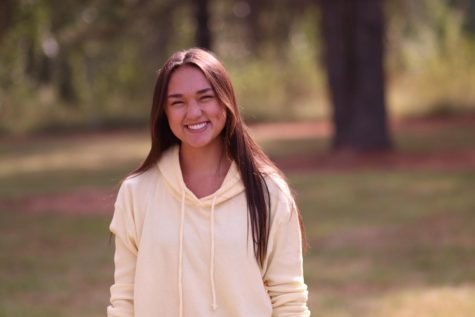
McCalee Cain is a senior and it is her third year on staff. She is the Editor-in-Chief.
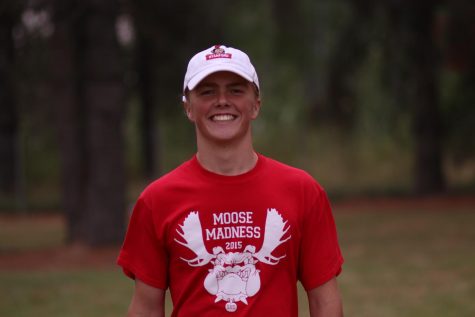
Sam Diercks is a senior and it is his second year on staff. He is the multimedia editor.
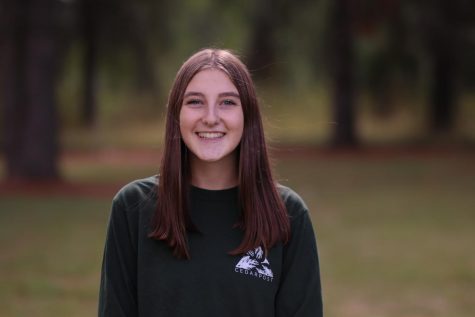
Sarah Donnelly is a senior and it is her second year on staff. She is a lifestyles editor.
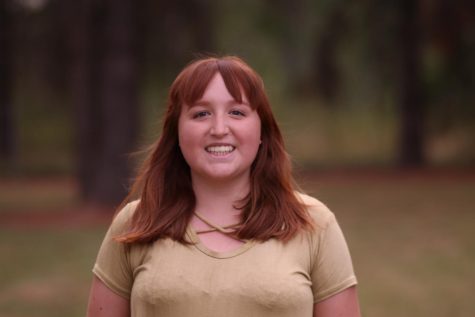
Cienna Roget is a senior and it is her second year on staff. She is the managing editor.





